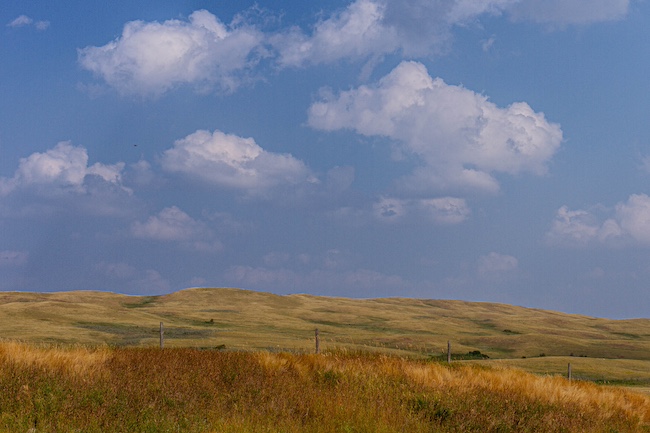We decide to explore a bit more of our beautiful province and head toward Ogema, about an hour and a half southeast of Moose Jaw. Gerry wants to check out the Southern Prairie Railway and I’m always up for a visual feast of prairie scenery. It turns out to not be what he expected, but we spend a pleasant bit of time wandering around the Deep South Prairie Museum, which we enjoy very much. It’s always a bit jarring to find things you had in your childhood home in an antique museum, but that’s a story for another day.
We take a different route home, and haven’t gone far when I spy a sign giving the distance to the town of Bengough. I’ve never been to Bengough, but it’s where my story began.
In 1958, my birth mother, Mary, lived in a small house near Bengough with a man named Francis (or Frank, as I’ve always referred to him), ostensibly as a housekeeper. I wrote about them in The Presence of Absence: A Story About Busyness, Brokenness, and Being Beloved.
Mary later described Frank as a tall, thin, lonely man, who was not especially good looking. Married, but separated from his wife and four children, he lived in a small house on his family’s land. He was unkind, one could even say cruel. (Later, his daughter, my half-sister, described him that way to me: “He was mean.” I heard stories of abuse, abandonment, and a man who took out his pain on those around him. It was difficult to learn about the character of my birth-father and sort through thoughts of what there was of him in me.) But Mary had no way of knowing that when she and four-year-old Merlin moved into his home. Mary and Frank’s relationship crossed the line right away, but according to Mary, there was “no great love” between them. She left after a few months when Frank became violent. A man of low character, he slandered Mary to others in the same way he had slandered his wife and children to Mary. Mary sent a letter to Frank telling him she was pregnant and asking for financial help, but he never responded. He had already chosen to walk away from his responsibilities to the four children he had with his wife, so why would he do anything different now? Mary must have felt overwhelmed and alone.
I don’t know a lot about Frank, other than what I wrote about above. I do know he spent the last decade of his life in Moose Jaw. I was still a kid when he died, but our paths might have crossed somewhere sometime. It’s odd to think about that.

His obituary is incorrect. He actually had three daughters, but Frank chose not to take the honourable path of helping Mary and acknowledging me as his daughter. Years ago when I found out that he was buried in Bengough I intended, one day, to go there. It turns out that this is that day.
Finding the cemetery is easy, finding specific graves is more of a challenge. With a sense of deja vu (I did the same thing when I searched for Mary’s grave), Gerry and I split up and start wandering.

I find him first. My birth father is buried in a shaded corner next to his parents—my grandparents. The experience is nothing like when I found my birth mother’s grave. I feel nothing. But I stand and acknowledge the moment and the people whose bodies are buried here and take a few photos. There. That chapter is done and dusted.
Now I have stood at the graves of both of my birth parents and been to Bengough where their story began and ended and mine started. When I started down the path of finding out who I came from, I walked with the intention of exposing secrets. Secrets = shame, and that’s not a healthy cloak for anyone to grow up under. Today, there’s an element of satisfaction in sharing a headstone photo for the man whose genes I carry. No more secrets.



Leave a Reply